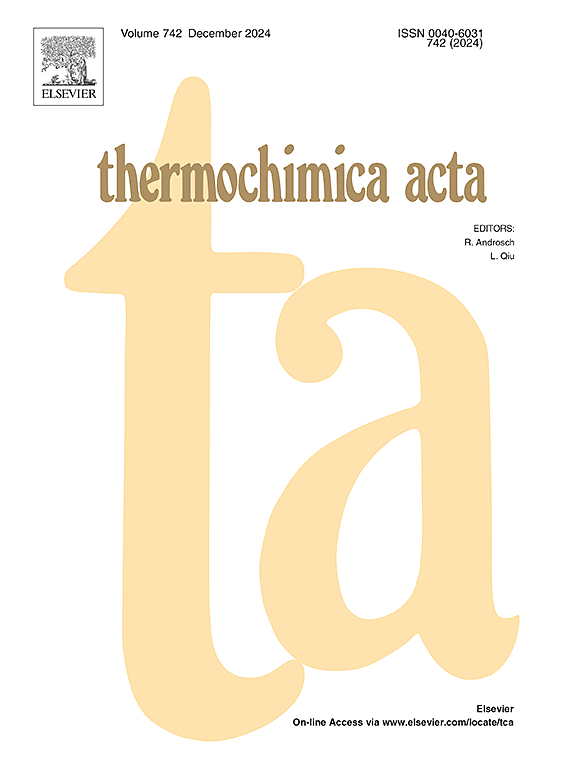Study on the effect of rice husk ash and nano silica on the early hydration kinetic characteristics of oil well cement
IF 3.1
2区 化学
Q2 CHEMISTRY, ANALYTICAL
引用次数: 0
Abstract
To explore the feasibility of using rice husk ash (RHA) as a substitute for nano-silica (NS) in partially replacing oil well cement and establishing a green, low-carbon oil well cement system, this study explores the effects of RHA and NS on the early hydration kinetics of cement using isothermal calorimetry at 20, 30, and 50 °C. The hydration exothermic rate and cumulative heat release of oil well cement with varying RHA and NS dosages were analyzed by isothermal calorimetry. Based on the Krstulovic’-Dabic’ model, hydration kinetics were evaluated and validated through thermogravimetric analysis. Results showed that RHA accelerated the peak exothermic rate and increased its intensity by 11.09 % and 38.62 % at 20 °C and 30 °C, respectively, with temperature effects being more pronounced at 50 °C. Both RHA and NS shortened induction and acceleration periods, enhanced product nucleation and growth rates, and prolonged phase boundary reactions. As temperature rose, RHA's pozzolanic activity significantly boosted cement hydration. The kinetic model effectively described the early hydration characteristics, offering insights into RHA's role in cement hydration.
稻壳灰和纳米二氧化硅对油井水泥早期水化动力学特性影响的研究
为探索稻壳灰(RHA)替代纳米二氧化硅(NS)部分替代油井水泥、建立绿色低碳油井水泥体系的可行性,本研究采用等温量热法,在20、30、50℃条件下,研究了稻壳灰和纳米二氧化硅对水泥早期水化动力学的影响。采用等温量热法分析了不同RHA和NS用量下油井水泥的水化放热速率和累积放热量。基于Krstulovic ‘ -Dabic ’模型,通过热重分析对水化动力学进行了评价和验证。结果表明:在20℃和30℃时,RHA分别加快了放热峰速率11.09%和38.62%,其中温度效应在50℃时更为明显;RHA和NS均缩短了诱导和加速周期,提高了产物成核和生长速率,延长了相边界反应时间。随着温度的升高,RHA的火山灰活性显著增强了水泥的水化作用。动力学模型有效地描述了早期水化特征,为RHA在水泥水化中的作用提供了新的见解。
本文章由计算机程序翻译,如有差异,请以英文原文为准。
求助全文
约1分钟内获得全文
求助全文
来源期刊

Thermochimica Acta
化学-分析化学
CiteScore
6.50
自引率
8.60%
发文量
210
审稿时长
40 days
期刊介绍:
Thermochimica Acta publishes original research contributions covering all aspects of thermoanalytical and calorimetric methods and their application to experimental chemistry, physics, biology and engineering. The journal aims to span the whole range from fundamental research to practical application.
The journal focuses on the research that advances physical and analytical science of thermal phenomena. Therefore, the manuscripts are expected to provide important insights into the thermal phenomena studied or to propose significant improvements of analytical or computational techniques employed in thermal studies. Manuscripts that report the results of routine thermal measurements are not suitable for publication in Thermochimica Acta.
The journal particularly welcomes papers from newly emerging areas as well as from the traditional strength areas:
- New and improved instrumentation and methods
- Thermal properties and behavior of materials
- Kinetics of thermally stimulated processes
 求助内容:
求助内容: 应助结果提醒方式:
应助结果提醒方式:


